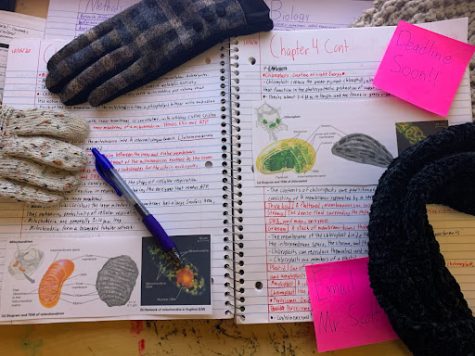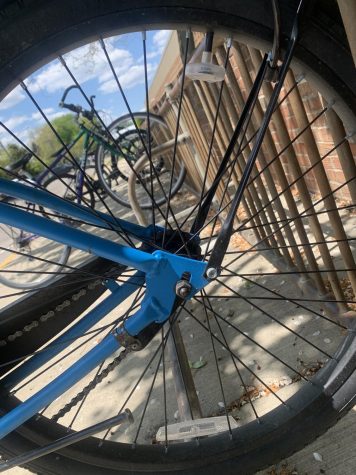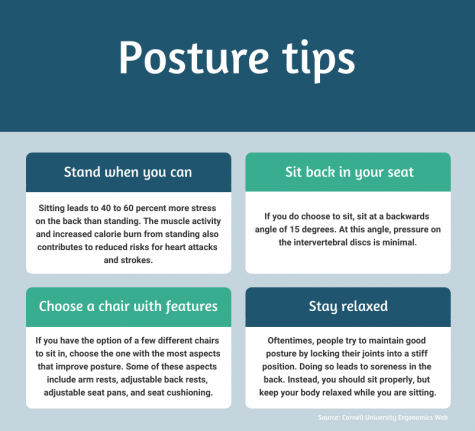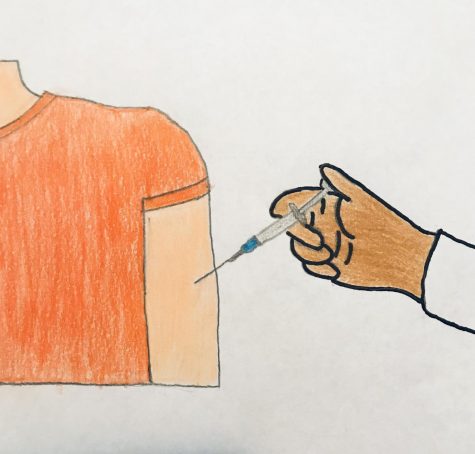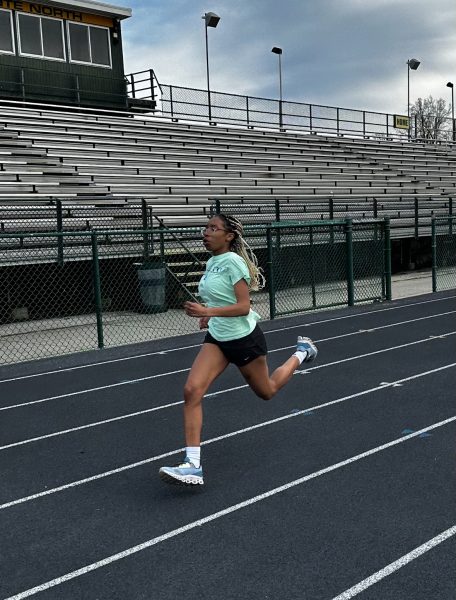Seasonal allergies worsen as mask mandates are lifted
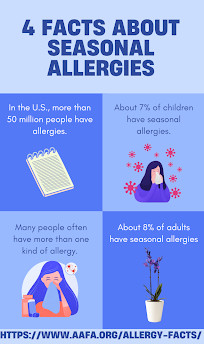
Photo credit: Kaitlyn Barr
May 13, 2022
Seasonal allergies are a yearly struggle for many. Across the wide range of possible allergens that cycle throughout the year, seasonal allergies tend to hit their worst in the spring and winter. Reina O Salazar, MD, explains that mold is a major contributor to the worsened allergies in these seasons. Although some students feel allergies have become more of a nuisance in the current year, Salazar disagrees.
“What makes things seem worse is that people have been inside and wearing masks the last 2 years and did not have great exposures so this year seems worse compared with the last few COVID years,” Salazar said. “It’s just that we are out and about without masks.”
Since the mask requirement has been lifted in many areas of life, sickness among kids has begun to increase, including an increase in the effects of seasonal allergies. Senior Kristin Krier believes allergy symptoms can be distracting because of the noise and awkward moments they create when in class.
“You don’t want to cough in class or I don’t want to get up to blow my nose because I’m really awkward in class,” Krier said. “I don’t want to be sniffling all the time.”
Students may feel that their allergies cause a distraction while in class, however biology teacher Susan Speirs disagrees with the idea that reactions are an interruption.
“[Allergies do not cause] distraction or lack of engagement,” Speirs said. “Generally students who are not feeling well stay home to rest and get well.”
By choosing to stay home when not feeling well, it allows those in school to maintain a productive classroom environment, according to Spiers. Schoology helps students at home to stay up to date with what is happening in the classroom, making it possible for them to stay on track.
When suffering from seasonal allergies, there are many common symptoms that individuals can face, ranging from a stuffy or runny nose to difficulty breathing and hives, according to Salazar. However, there are treatment options to help lessen the symptoms for people who suffer from them.
“Basic treatments are over the counter allergy medication such as benadryl, zyrtec, and allegra,” Salazar said. “There are also prescription medications, biologics, and immunotherapy [IT – allergy shots].”
While seasonal allergies are often something that individuals take lightly and simply wait for them to pass, Speirs believes that if you think that you do have seasonal allergies, it could be beneficial to talk to an allergist about what possible allergies as well as potential treatment.
To my knowledge, the best way to treat seasonal allergies is to seek out the support of an allergist. In this way, you can be tested for overall health and wellness and undergo tests to determine allergy triggers.
— Susan Speirs, biology teacher
“To my knowledge, the best way to treat seasonal allergies is to seek out the support of an allergist,” Speirs said. “In this way, you can be tested for overall health and wellness and undergo tests to determine allergy triggers.”
Although Krier believes the allergies can be distracting to her and her environment, she has some methods for managing them such as medication and masking.
“I usually take an Allegra in the morning, sometimes I’ll take Benadryl at night,” Krier said. “About the time when I start doing yard work to help avoid allergies from the grass. I will actually wear a mask when I bag grass after mowing.”
It’s easy to forget seasonal allergies don’t just appear because it’s springtime or fall. Salazar explains that there are things to be conscious of or stay away from to help contain those reactions.
“Pollen from flowers, trees, grass, weeds, all at different times of the year [are things to be mindful of].” Salazar said. “Also mold is high in spring and fall from rain.”



